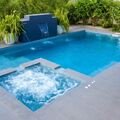What can you do to make buying a laptop an easier process? How can you reduce your stress as you try to find the perfect model? What can be done to make the price something you can actually afford? If you take the time to read this article, you can have all of this and more.
When purchasing a new laptop, ask if you have the option of trading in your old computer. Many manufacturers will allow this, and it can save you several hundred dollars on your new laptop purchase. The old laptop is often refurbished and resold, meaning less waste going into landfills as well.
If you are looking for what's new and hot in laptops, consider buying a convertible laptop. These laptops can act as a tablet (like Apple's iPad) and then snap right into a keyboard base with extended processing power to act as a fully powered laptop. These are very exciting products.
Know about the company's reputation before you purchase your laptop. If your laptop is made by a company that also sells cars and kitchen appliances, for example, it might not be a great company to buy your laptop from. Be aware of how trustworthy the company is and how well their products are regarded.
If you're buying a laptop online, know how to ask questions about it. Find out what the brand name is, and tell the person to give you the specs. If they can't tell you then it's probably a good idea to avoid buying from them. Unless you can look over it in person, it's not worth the risk since you don't know what you'll be getting.
Size plays a large role in laptop choice. Laptop sizes are typically 13 to 17 inches when measuring diagonally. A 17" laptop is best if you use it as a desktop. If portability is more important, steer towards 13".
Before you buy your laptop computer, try it out first. Many large retail stores carry a large selection of makes and models that you can take for a test drive before you buy. You can see if the keyboard feels comfortable and check out how fast you can work before you make your decision.
To get the best deal on a laptop, start looking at the release cycles ahead of time. You can save a lot of money by purchasing last years model. Even a computer that is only a few months old can help you save. You may not get all the newest hardware but an older laptop may suit your needs.
Be sure to get a case for your new laptop. The fact is that dropping it, having someone bump into it or watching helplessly as someone's coffee spills all over it will all break your heart. If you protect your laptop, it will last longer, so the investment in a case is worth it.
Look for a laptop with a matte screen for a glare-free experience in all lights. Shiny screens reflect light from the sun and other sources. This is terrible for your eyesight. It might also be the cause of frequent headaches. To avoid this, look for the laptop model you want with a matte screen.
How strong are you? While most laptops are pretty light today, carrying them around all day can still wear you out. If you plan to do a lot of moving around, a lighter model will be a better choice. If you will instead travel by car mostly, you don't have to worry so much about weight.
To make your favorite applications easy to find and use on your laptop, pin the right shortcut to your taskbar. Go to the Start menu and find the shortcut to the program you want to pin. Right click on that short cut and choose "Pin to Taskbar." The icon will appear permanently just to the right of your Start button.
If you expect to have your laptop for more than a few years, consider how upgradable the laptop is. You may want some additional memory or better graphics down the line, so a few empty card slots will be a big deal when buying. A laptop that isn't upgradable means less of a shelf life.
If you plan to do a lot of high-end gaming on your laptop, understand the components required can be expensive. Bleeding edge graphic cards, for instance, are much more expensive on a a laptop than their PC counterparts. You should probably understand that gaming on a laptop entails a few compromises unless you are able to really break the bank.
Determine the software that comes installed on your computer. You'll most likely need spreadsheet and word processing programs. You don't want these to be the trial versions. If these programs aren't included, you will need to purchase them separately.
Screen size is not the most important factor when buying a new laptop. Almost all laptops today are capable of using dual displays. With a simple HDMI plug, the smallest laptops can be converted into a dual screen of any size. This allows you to use your small laptop when you are on the go, but plug in at home for any size you want.
If you leave your computer lying around, you need an extra layer of security. Many laptops have fingerprint or facial recognition security.
Look at all the different brand names. Perhaps you are quite familiar with better known name brands. Research the brands you are interested in to see who has the best ones. A brand might not be a popular brand, but it doesn't mean it's a bad machine.
If you are buying a PC laptop, buy one with an Intel processor, NOT AMD. The fact is that AMD processors are cheap, and you truly get what you pay for. Going with Intel promises you reliability so that your computer will operate exactly as you expect it to.
Now you know how to streamline the laptop purchasing process. You can locate a great deal at a price that will easily fit into your budget. You know what you need to know about buying a laptop, and that means you'll have your new computer in no time if you use these tips.
A bejegyzés trackback címe:
Kommentek:
A hozzászólások a vonatkozó jogszabályok értelmében felhasználói tartalomnak minősülnek, értük a szolgáltatás technikai üzemeltetője semmilyen felelősséget nem vállal, azokat nem ellenőrzi. Kifogás esetén forduljon a blog szerkesztőjéhez. Részletek a Felhasználási feltételekben és az adatvédelmi tájékoztatóban.
Kommentezéshez lépj be, vagy regisztrálj! ‐ Belépés Facebookkal




